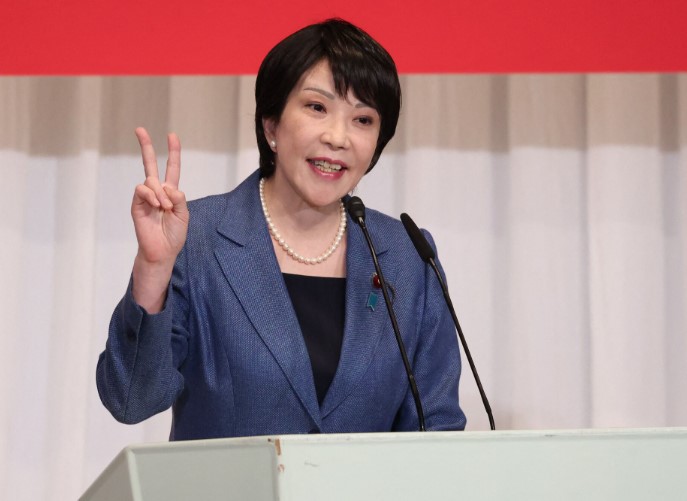Japan’s ruling Liberal Democratic Party (LDP) elected Sanae Takaichi as its new leader, a decision many view as historic. Her victory makes her the first woman ever to head the powerful LDP, putting her on course to become Japan’s first female prime minister.
Takaichi Chosen as LDP Leader Amid Calls for Change in Japan Politics
The 64-year-old politician defeated agriculture minister Shinjiro Koizumi, who is the son of former prime minister Junichiro Koizumi, in a tough runoff vote on Saturday. Her win carries major political significance, as Japan has long been criticized for its poor record on gender equality.
Sanae Takaichi’s election comes at a time when the party is trying to rebuild public trust. The LDP recently faced heavy election losses that shook its political stronghold. Despite these setbacks, the LDP continues to be the largest party in Japan’s lower house of parliament, which gives her a strong chance to officially secure the prime minister’s post in an upcoming parliamentary vote scheduled for mid-October.
Outgoing leader Shigeru Ishiba stepped aside, making way for Takaichi. After her win was announced, she bowed deeply to fellow lawmakers, a traditional gesture of respect in Japanese politics. In her speech, she thanked her supporters and said, “I made history for the LDP. I am not feeling joy yet, only the weight of the challenges ahead that I must face with everyone’s help.”
Japan’s giant warship heads to US for deadly Tomahawk missile upgrade
This historic moment has placed Japan in the global spotlight, as it joins the ranks of nations where women have risen to the highest political office.
Who Is Sanae Takaichi?
Sanae Takaichi is not a newcomer to Japanese politics. She has served in several important government roles and has been a strong voice in policymaking. She was part of the cabinet under former prime minister Shinzo Abe, one of Japan’s longest-serving leaders. During this time, she played an active role in shaping policies related to Japan’s economic resilience and national security in technology.
Takaichi is often described as a political protégé of Abe. She shares many of his conservative and nationalist views. Like Abe, she supports strengthening Japan’s military capabilities and taking a firm position on national security. This has earned her respect among conservatives inside the LDP, but it has also sparked debates in the broader political landscape.
Her personal background adds to her identity as a strong and determined politician. She hails from Nara, a historic city in Japan. However, she has faced criticism at times for her comments about foreigners and for citing unverified reports about crime in her hometown. These remarks drew backlash but did not derail her political career.
Takaichi’s rise to the top of the LDP highlights how she has carefully built alliances and remained a loyal figure within the party’s conservative wing. This loyalty has paid off, allowing her to defeat more established rivals and carve out a unique space in Japanese politics.
Hard-Line Stance on China and Controversial Visits
One of the most defining features of Sanae Takaichi’s political profile is her hard-line stance on China. She has consistently pushed for stronger measures to counter Beijing’s growing influence in the region. Her views reflect a section of Japan’s leadership that wants to take a tougher approach to protect national interests.
Another aspect that makes Takaichi stand out is her regular visits to the Yasukuni Shrine in Tokyo. The shrine honors Japan’s war dead, including some figures who were convicted as war criminals after World War II. These visits often spark anger in neighboring countries, particularly China and South Korea, which see them as a painful reminder of Japan’s wartime past.
Despite the international criticism, Takaichi has continued these visits, which she describes as a personal act of respect. This shows her determination to stick to her principles even when they are controversial.
Typhon Missile in Japan, Dark Eagle in Australia — China warns of America’s missile ring tightening
Her critics argue that her uncompromising style could stir tensions, but her supporters believe that her stance shows strength and commitment to Japan’s sovereignty. For many within the LDP, her strong nationalist views are seen as an asset at a time when Japan faces challenges in regional security.
With her election as LDP leader, Sanae Takaichi has already changed Japan’s political history. Her journey to the top reflects both her political skills and the evolving face of Japanese leadership.

